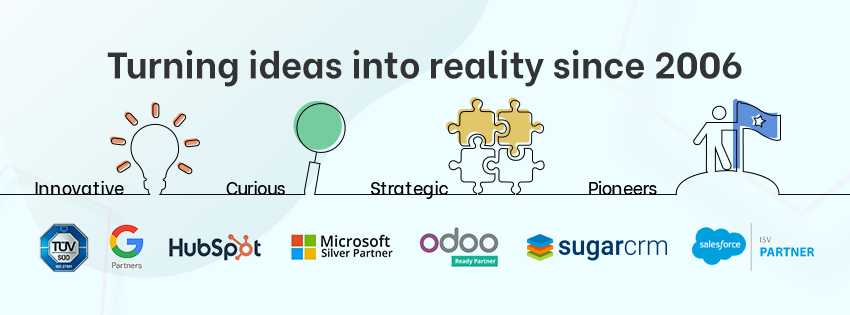How to Get the Best Results from Salesforce CRM Implementation in 2025?
Salesforce CRM implementation is critical for businesses looking to optimize customer relationships and streamline their operations. In 2025, companies of all sizes will increasingly turn to Salesforce for its flexibility, scalability, and innovation in customer relationship management (CRM). However, to truly maximize the benefits of Salesforce CRM implementation, it is essential to have a well-planned approach. From selecting the right tools and services to working with expert implementation partners, this guide will help you get the best results from your Salesforce CRM deployment.
1. Understand the Needs of Your Business
Before you begin your Salesforce CRM implementation, it's essential to understand the unique needs of your business. Every organization is different, and the CRM must be customized to fit the workflows, data processes, and goals specific to your company. This is especially true if you choose Salesforce CRM for manufacturing companies, where intricate supply chain processes and complex customer orders require specialized solutions.
Start by conducting an internal audit to assess your current CRM capabilities. Identify gaps in your existing processes and map out how Salesforce can address these inefficiencies. For example, do you need a system that integrates with other software, or is the priority to enhance customer service? By thoroughly understanding your needs, you can ensure that Salesforce is tailored to deliver maximum value.
2. Choose an Experienced Salesforce Implementation Expert
Salesforce is a powerful tool, but its success largely depends on the expertise of those implementing it. Hiring a seasoned Salesforce implementation expert is crucial. These professionals will guide you through the complexities of the platform, ensuring that your deployment is seamless and aligned with your business objectives.
Salesforce implementation experts are well-versed in all aspects of the platform, including customization, data migration, integration, and training. They can help you avoid common pitfalls, such as improper data migration, misaligned workflows, or security vulnerabilities. A good expert will take the time to understand your business needs and offer strategic advice to maximize the return on your Salesforce investment.
When selecting a Salesforce implementation expert, look for individuals or companies with a strong portfolio of successful CRM implementations. They should have experience in your industry and offer a personalized approach rather than a one-size-fits-all solution.
3. Leverage Salesforce CRM Implementation Services
In 2025, many businesses are opting for Salesforce CRM implementation services to ensure a smooth transition. These services offer end-to-end support, from planning and customization to deployment and training. Working with Salesforce implementation companies can significantly reduce the risk of delays, costly mistakes, or poor user adoption.
A good implementation service provider will conduct a thorough business analysis to determine your exact CRM needs. They will then customize Salesforce to your specifications, ensuring that every feature is optimized for your company. Some service providers also offer ongoing support, helping your team adapt to new updates, features, or changes in the platform.
To get the best results from your Salesforce CRM implementation services, consider asking potential partners about their project management methodology. Agile project management is often preferred for CRM deployments, as it allows for more flexibility and faster turnaround times.
4. Ensure Data Quality and Proper Integration
One of the most critical aspects of Salesforce CRM implementation is data quality. Poor data migration can lead to incomplete customer profiles, duplicate records, or inaccurate reports, which in turn affect your business outcomes. When moving data from your existing CRM system to Salesforce, it's essential to clean and validate all data.
You should also ensure that Salesforce integrates smoothly with other software tools your business uses, such as ERP systems, marketing automation tools, or customer service platforms. Seamless integration will enable your teams to have a 360-degree view of your customers, leading to better decision-making and improved customer interactions.
Salesforce CRM offers robust integration capabilities, but configuring them correctly requires technical expertise. This is another area where working with Salesforce implementation companies or an expert can be invaluable. They will ensure your data is properly synced across systems, minimizing the risk of errors.
5. Focus on User Training and Adoption
One of the reasons why Salesforce CRM implementations fail is poor user adoption. No matter how well-designed the system is, it won’t deliver value if your employees don’t know how to use it effectively. A strong focus on user training and change management is essential to achieving the best results from your implementation.
Develop a comprehensive training program that covers all aspects of Salesforce relevant to your teams. Offer role-specific training to ensure that every employee understands how the platform fits into their day-to-day tasks. It's also helpful to create a group of internal Salesforce champions who can assist their peers and provide ongoing support.
User adoption also depends on how intuitive and user-friendly the system is. Salesforce is known for its customizable dashboards and reports, but these features need to be tailored to your team’s specific needs. This is where the expertise of a Salesforce implementation expert can make a significant difference.
6. Monitor Performance and Continuously Improve
Your Salesforce CRM implementation doesn’t end once the system is live. To get the best long-term results, continuous monitoring and improvement are necessary. Regularly review key performance indicators (KPIs) such as customer satisfaction scores, sales pipeline growth, or marketing ROI to assess how well the CRM is performing.
Use Salesforce’s built-in analytics tools to track performance metrics and identify areas for improvement. You may also want to consider working with Salesforce implementation companies for ongoing support and optimization. These partners can help you implement new features, updates, or integrations as your business evolves.
In 2025, Salesforce is set to release new AI-powered tools and automation capabilities, further enhancing its value. By staying on top of updates and continuously optimizing your Salesforce environment, you can ensure that your CRM remains a powerful asset.
7. Choose the Right Salesforce Implementation Partner
If you're looking for a reliable Salesforce CRM implementation, partnering with a reputable Salesforce implementation company is crucial. These firms specialize in delivering custom CRM solutions tailored to specific industries. For instance, if you are in the manufacturing sector, choose Salesforce CRM for manufacturing companies that focus on industry-specific challenges, such as supply chain management and customer ordering systems.
The best Salesforce implementation companies offer a blend of technical expertise, industry knowledge, and project management skills. They will guide your organization through every stage of the implementation process, ensuring a smooth, successful deployment.
Conclusion
Salesforce CRM implementation is a significant investment that can transform your business operations and improve customer engagement. By working with the right Salesforce implementation expert or company, ensuring data quality and integration, and focusing on user adoption, you can achieve the best results from your Salesforce deployment in 2025. Keep in mind that continuous monitoring and improvements are key to sustaining the benefits of this powerful CRM tool.


@biztechcs
Why Hiring Vue.js Developers Can Boost Your Web Development? | #Hiring Vue.js Developers
With over 15+ years of experience and 1200+ successful projects, BiztechCS is an ISO 27001 and ISO 9001 certified company. We are on a mission to help businesses like yours get ready for tomorrow.
Install Palscity app







